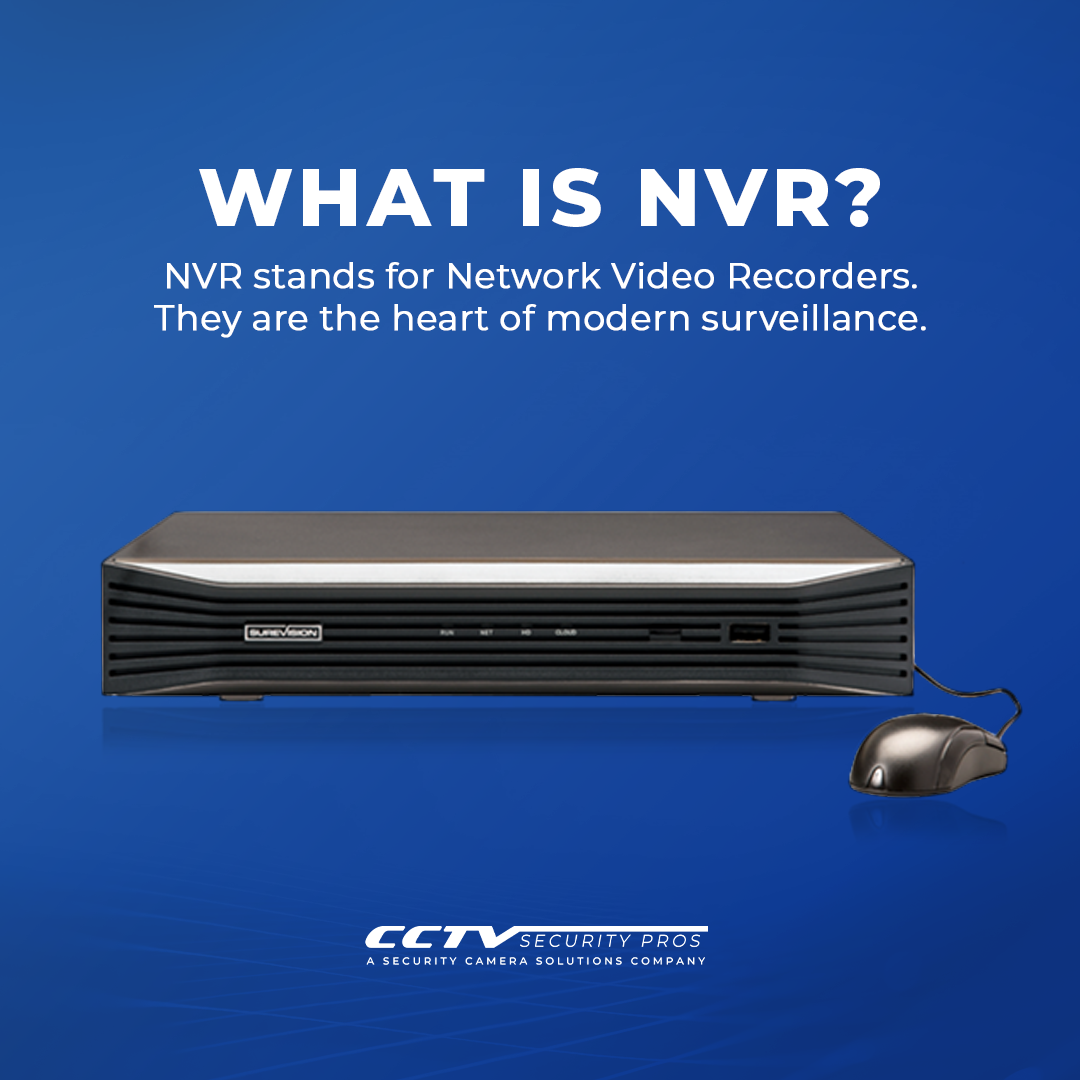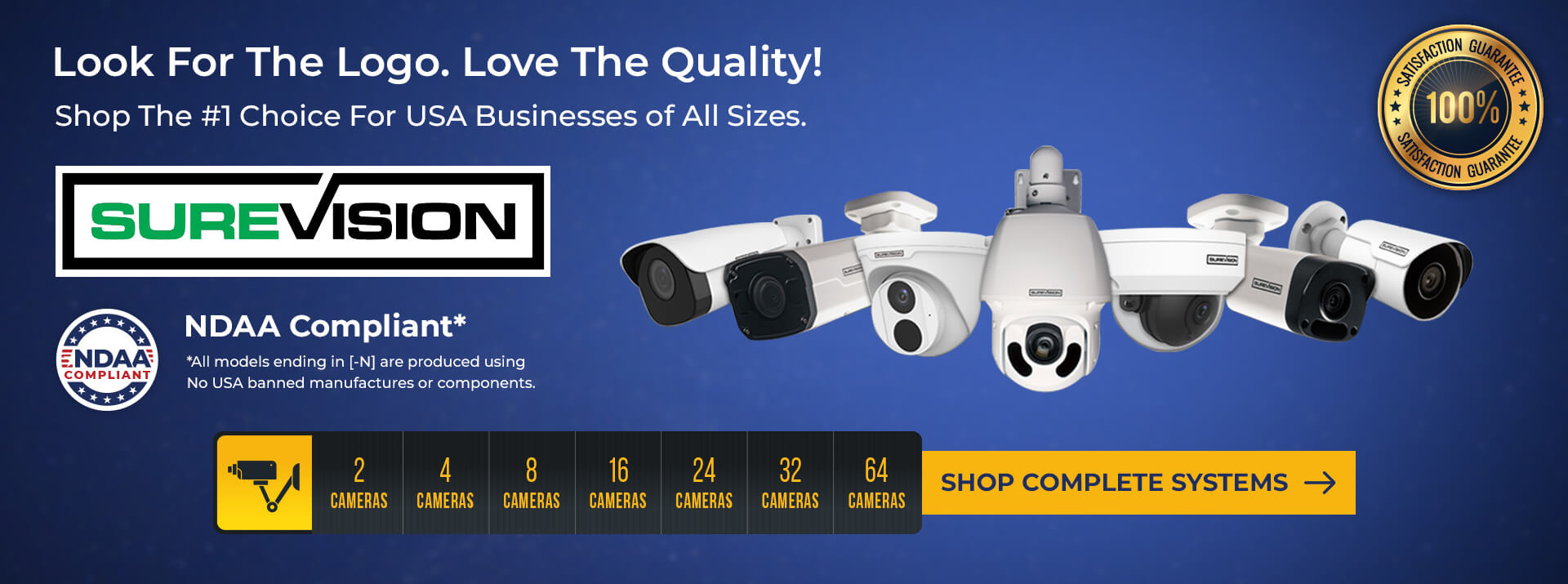What is a Network Video Recorder for Surveillance
Sep 26, 2023

If a picture is worth a thousand words, then a video is priceless. And in today's world, where security is paramount, capturing high-quality video footage has become a necessity. This is where Network Video Recorders (NVRs) come into play. In this blog post, we will explore what exactly a Network Video Recorder is, how it works, and why it is an essential component in any security camera setup.

Introducing the Network Video Recorder (NVR)
When it comes to surveilling your home or business, security cameras are a crucial tool in keeping a watchful eye on your surroundings. However, simply having cameras in place is not enough. Without a reliable method to store and manage the footage, the entire surveillance system may be rendered ineffective. This is where a Network Video Recorder (NVR) comes into play.
An NVR is a specialized device that is designed to record, store, and manage video footage captured by security cameras. Just like a hard drive on your computer, an NVR provides a centralized location for storing and organizing video data. But unlike traditional analog recording systems, NVRs offer a wide range of advanced features that enhance the overall surveillance experience.
How Does an NVR Work?
At its core, an NVR receives video feeds from one or more IP (Internet Protocol) cameras. IP cameras are capable of sending video data over a network, making them highly flexible and easy to install. The NVR then processes and compresses the video footage to optimize storage space and improve playback performance.
One of the key advantages of an NVR is its ability to handle multiple cameras simultaneously. This means that you can connect multiple cameras to a single NVR, allowing for comprehensive coverage of your property. Additionally, NVRs can often support higher resolution cameras, such as 4K Ultra HD, ensuring that you capture every detail with exceptional clarity.
Once the NVR has processed and compressed the video footage, it is stored on internal hard drives within the device. These hard drives can vary in capacity, allowing you to choose the storage size that best suits your needs. Some NVRs also offer the option to expand storage capacity through additional hard drives or network-attached storage devices.
To access the recorded footage, users can connect to the NVR through a web-based interface. This allows for remote viewing and playback of the video files from anywhere with an internet connection. Some NVRs also support mobile apps, enabling users to monitor their cameras and view live or recorded footage directly from their smartphones or tablets.
The Benefits of Using an NVR
Now that we have a basic understanding of how an NVR works, let's explore some of the key benefits it provides:
1. Enhanced Video Quality
With an NVR, you can take full advantage of the high-resolution capabilities of IP cameras. This means that you can capture clear, detailed video footage, ensuring that no important detail goes unnoticed. Whether you want to identify a suspicious individual or review an incident, the enhanced video quality provided by an NVR is invaluable.
2. Greater Storage Capacity
Unlike analog recording systems that rely on physical tapes or DVDs, NVRs utilize internal hard drives for storing video footage. This allows for significantly larger storage capacity, which means you can store weeks or even months worth of video data without worrying about running out of space. With larger storage capacity, you can maintain a comprehensive video archive for future reference if needed.
3. Easy Retrieval and Playback
Navigating through hours of video footage can be tedious, especially when you are trying to find a specific event. NVRs simplify this process by offering advanced search and playback features. Users can easily search for specific dates, times, or events, and quickly retrieve the desired footage. This saves time and enhances efficiency when reviewing footage for investigations or evidence gathering.
4. Remote Monitoring and Accessibility
One of the greatest advantages of an NVR is the ability to remotely access your cameras and recorded footage. Whether you are traveling, at work, or simply away from your property, you can conveniently monitor your cameras in real-time from any device with an internet connection. This provides peace of mind and allows you to stay connected with what matters most to you, no matter where you are.
5. Integration with Other Security Systems
NVRs are not standalone devices. They can be seamlessly integrated with other security systems, such as alarms, access control systems, and motion sensors. This integration enables a comprehensive and unified security solution that can be easily managed from a single interface. With the ability to control and monitor multiple security components from one place, you can streamline your security operations and respond effectively to any potential threats.
Choosing the Right NVR for Your Needs
When it comes to selecting an NVR for your security camera setup, there are several factors to consider. Here are a few tips to help you make an informed decision:
- Number of Cameras: Determine the number of cameras you need to connect to the NVR. Make sure the NVR you choose can support the desired number of cameras simultaneously.
- Storage Capacity: Assess your storage requirements based on the number of cameras, desired video quality, and recording duration. Consider factors such as motion-activated recording and scheduled recording to optimize storage space. Each NVR we sell comes with a pre-installed hard drive for your convenience.
- Remote Access and Mobile Apps: If remote monitoring is important to you, ensure that the NVR supports remote access through a web-based interface or mobile apps. Check for compatibility with your preferred devices and operating systems.
- Integration and Expandability: If you plan to integrate your NVR with other security systems, verify compatibility and expandability options. Ensure that the NVR supports the necessary protocols and interfaces for seamless integration.
Wrapping Up NVRs
In conclusion, a Security Network Video Recorder (NVR) is an essential component of any security camera setup. It provides centralized storage, efficient management, and easy access to video footage captured by IP cameras. NVRs offer enhanced video quality, greater storage capacity, easy retrieval and playback, remote monitoring capabilities, and the ability to integrate with other security systems.
When choosing an NVR, consider factors such as the number of cameras, storage capacity, remote access options, and integration capabilities. By selecting the right NVR for your specific needs, you can ensure that your surveillance system is reliable, efficient, and effective in keeping your home or business safe and secure.
So, whether you are implementing a security system for your new home or upgrading the surveillance setup for your business, remember to include a Network Video Recorder – your trusted companion in capturing and managing valuable video footage.
Need some help with finding the perfect NVR? Would you like to purchase a top quality 4K NVR for your IP cameras? Call a Pro at CCTV Security Pros today at (888) 653-2288.





